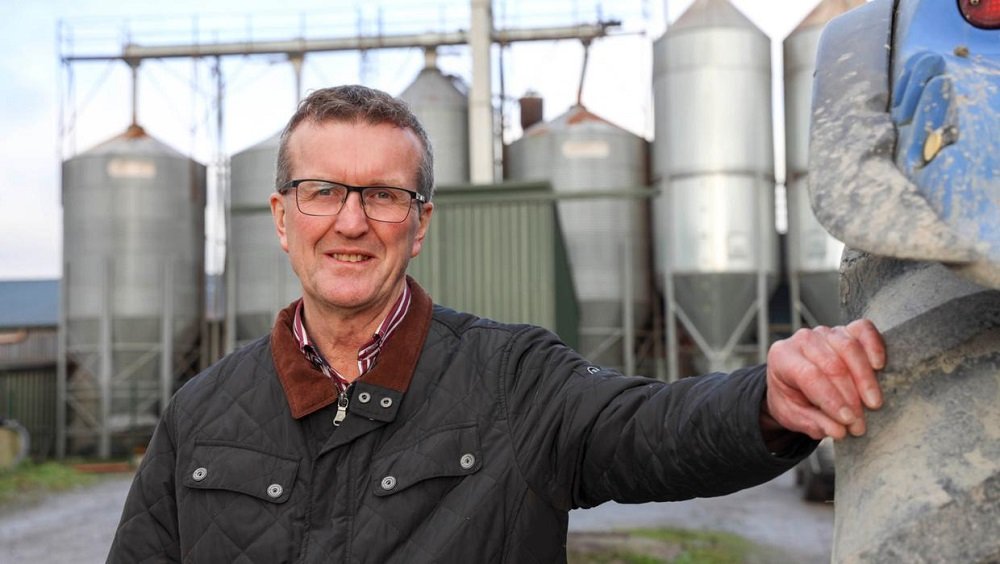As the dust settles on the unprecedented standoff between Ireland’s political leadership and former EU Trade Commissioner Phil Hogan, those most affected by the Oireachtas Golf Society debacle have once again failed to communicate just how much they have to lose.
The loss of two Ministers for Agriculture, Brian Cowen and Dara Calleary, in a matter of weeks and the resignation of EU Trade Commissioner Phil Hogan, who, like him or loathe him, was arguably crucial for Irish agriculture’s trade and Brexit interests, has left an already uncertain agri sector at risk of total collapse.
Irish farmers are livid and concerned, yet since the Clifden debacle media focus has been on dinners and table plans at the K Club. It needn’t have been this way. Instead, the past fortnight has been another example of ineffective communication from Ireland’s farming representatives.
With Donegal TD Charlie McConalogue newly appointed as Minister for Agriculture, the third to take the role in recent weeks, how can the agri sector turn attention to its key priorities using an intelligent communications strategy?
Missed opportunity
As Golfgate unfolded, practically in slow motion, Irish farmer representative groups were failing to communicate their concerns: that the loss of another Minister for Agriculture and the resignation of the EU Trade Commissioner was more bad news for the sector.
The dire situation faced by many Irish farmers should have made this an easy win. The average farm income in Ireland is €23,483, 40% less than the average industrial wage of €39,000. A third of all farmers earn less than €8,000 a year.
But any urbanite listening to RTÉ’s News at One last Tuesday as fresh IFA President Tim Cullinan made his case now probably thinks things really aren’t at all that bad. They may have even asked themselves: would those farmers ever stop complaining?
Every part of Irish society and the economy has been affected by Covid-19, farmers included. Likewise, the average Irish citizen (and even most politicians) do not understand the complexities of agriculture policy, which means important issues frequently go uncommunicated.
Cullinan missed a golden opportunity last week to explain them, build a sense of solidarity with the wider Irish public, and meaningfully convey the ramifications of Golfgate for Irish farmers. Instead, he outlined how “we (listeners) all know” the “effects of CAP, Covid-19, and Brexit for farmers”, assuming that his audience indeed had enough background knowledge in the agri sector to follow along. Assumption, however, is a poor substitute for proper explanation.
Separately, many politicians from rural backgrounds, many representing agricultural constituents, also turned to national and local media to give their two cents on the Golfgate. Very few, if any, drew attention to the concerns of the agri sector.

This conspicuous silence betrays a wider problem: the agri industry has not meaningfully engaged with public representatives. For those who follow public affairs, this might come as a surprise. After all, last year, the IFA, after Ibec, had the second highest level of political engagement with the state.
What, then, did the IFA spend their time talking about? One suspects that instead of focusing on the key issues of farm sustainability, young farmer supports, and trade, agri stakeholders were distracted by unrest in the beef sector and pleas to keep the Greens away. This has meant that bigger picture, long-term issues have been left to fester.
A chance for a clean slate
The appointment of Charlie McConalogue is a chance for a fresh start, but he won’t have time for the usual niceties and photocalls.
McConalogue immediately faces the sizeable task of protecting Ireland’s agriculture interests in the 120 days until the end of the Brexit transition period, at which point either a new UK-EU trade deal will be in place or the UK reverts to WTO rules. He will also have to deal with the ongoing issue of reducing farmer incomes, beef sector unrest, and rural decline.
Likewise, whoever is appointed the new EU Commissioner for Trade, whether Ireland retains the much sought-after role or loses it to an EU colleague, will have a great deal on his or her immediate and long-term agenda.
The Irish Farmers Association and a multitude of other farmer representative groups would do well to organise and collaborate on what is now most in need of action, keeping in mind tighter schedules, the three-headed body of the new Government, and the complexities of the pandemic.
There are three steps to meaningful engagement:
- Study the audience – Public representatives, be they in the Dáil or higher chambers of Brussels, listen and bow to public sentiment. Farmers must convey in relatable terms to those who do not work the land just how much they are set to lose in a messy Brexit.
Ireland’s agri food sector exports almost 40% of its produce to the UK, and it is by far its largest export market, valued at €5.2 billion. A failure to agree a workable EU-UK trade deal is simply not an option.
- Relatable spokespeople – Despite the fact that only 5% of Ireland’s farmers are below the age of 35, Irish agriculture is modernising and leading global targets on carbon and environmental efficiencies. 90% of the food we produce is exported.
Who can tell that story in a way that resonates? To dispel stereotypes, farmer representative groups should utilise younger and more diverse spokespeople.
- One message – Farmers have been divided into a multitude of camps with their own concerns, messages, and asks. Such division makes it difficult for the public and politicians to understand what the priority is for agriculture.
Each group must work together not to contradict or outcompete but to collaborate and be unified in what they need the new Minister and Trade Commissioner to do.
This Government is accountable to all Ireland, and that includes the rural parts. If it wants to move forward and rebuild trust with Irish society, Minister McConalogue must quickly get a firm grasp on agri affairs.
He must do more than sit on the fence between food producers and processors, and low-income farmers and high-profit corporations, and instead lead meaningful change in the way we produce and consume food.
Farmers need to get serious about what they say and how they say it. Representative groups must do everything they can to shake off the stereotype of an old-fashioned, backwards-looking industry by communicating with and through Ireland’s ever more educated, modernised, and global food production-focused farmers.

About the author
Barry supports 360’s portfolio of public affairs and corporate clients. With a background in farming, he has a particular interest in the agrifood sector and environmental policy. Before joining 360, Barry was Campaigns & Communications Officer and later President of UCD Students’ Union. He is also an alum of the Washington Ireland Program, interning with the New York State Comptroller during his time in the US.
